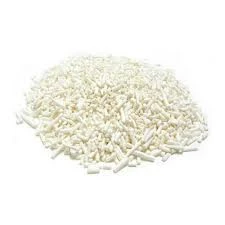
aluminum hydroxide for peptic ulcer disease
Aluminum Hydroxide for Peptic Ulcer Disease
Peptic ulcer disease (PUD) is a significant health concern characterized by the formation of open sores or ulcers on the lining of the stomach or the first part of the small intestine (duodenum). This condition can cause considerable discomfort, manifesting through symptoms such as abdominal pain, indigestion, and bloating. In the treatment landscape of PUD, aluminum hydroxide has emerged as a commonly used agent, particularly due to its antacid properties.
Aluminum hydroxide is a compound that neutralizes stomach acid, providing symptomatic relief for conditions associated with hyperacidity, including peptic ulcers. It functions by raising the pH level in the stomach, effectively reducing acidity and consequently relieving the pain and discomfort associated with ulcers. Additionally, this antacid can protect the mucosal lining of the stomach, which is vital for those suffering from erosive gastritis or duodenal ulcers.
Historically, the introduction of aluminum hydroxide in the management of PUD can be traced back to the early mid-20th century when antacids became prevalent. Patients often sought immediate relief from burning sensations, which were exacerbated by dietary factors and stress. The advantage of aluminum hydroxide lies not only in its efficacy but also in its availability as an over-the-counter medication. This accessibility offers patients a convenient option for managing their symptoms before seeking further medical intervention.
Moreover, aluminum hydroxide is often used in combination with other therapeutic agents. In many cases, it is administered alongside magnesium hydroxide, another antacid, to mitigate potential side effects such as constipation commonly associated with aluminum compounds. By balancing the effects of these two agents, healthcare providers can offer patients a more comprehensive treatment approach, enhancing their quality of life and ensuring adherence to treatment protocols.
aluminum hydroxide for peptic ulcer disease

Despite its benefits, the use of aluminum hydroxide is not without limitations and potential side effects. Long-term use of aluminum-based antacids can lead to an imbalance of electrolytes, specifically phosphate, because aluminum can bind to dietary phosphorus and prevent its absorption. This may result in conditions such as osteomalacia, a softening of the bones. Therefore, it is crucial for patients to communicate openly with their healthcare providers about their symptoms and any concurrent medications they may be taking.
In addition, the effectiveness of aluminum hydroxide in treating peptic ulcers can be augmented when combined with proton pump inhibitors (PPIs) or H2-receptor antagonists. These medications further suppress gastric acid secretion, promoting healing of ulcerated tissues. For patients diagnosed with H. pylori infection—often a key contributor to ulcer formation—antibiotic therapy is typically included in the treatment regimen, further underscoring the necessity for a multi-faceted approach to PUD management.
Furthermore, lifestyle modifications play an essential role in the management of PUD. Patients are often advised to avoid certain irritants such as nonsteroidal anti-inflammatory drugs (NSAIDs), alcohol, and smoking, as these can exacerbate symptoms and impede the healing process. Dietary alterations can also contribute significantly to symptom relief; incorporating a balanced diet rich in fiber while avoiding spicy or acidic foods can help mitigate discomfort.
In conclusion, aluminum hydroxide remains an important tool in the management of peptic ulcer disease, providing patients with effective symptomatic relief while also playing a role in ulcer treatment strategies. Its antacid properties help neutralize excess stomach acid, protect the gastric lining, and offer combined therapeutic benefits when integrated with other medications. However, as with any medication, it is vital to use aluminum hydroxide under the guidance of a healthcare professional to avoid complications and ensure optimal outcomes in the treatment of peptic ulcer disease.
-
Pure Sodium Dichloroisocyanurate Dihydrate | Powerful DisinfectantNewsAug.29,2025
-
Industrial Chemicals: Quality & Purity for Every IndustryNewsAug.28,2025
-
Nitrile Rubber Honoring Strict Production StandardsNewsAug.22,2025
-
Aspartame Ingredients Honoring Food Safety ValuesNewsAug.22,2025
-
Fertilizer for Balanced Plant NutritionNewsAug.22,2025
-
Cyanide Gold Processing with High Purity AdditivesNewsAug.22,2025
-
Formic Acid in Textile Dyeing ApplicationsNewsAug.22,2025
Hebei Tenger Chemical Technology Co., Ltd. focuses on the chemical industry and is committed to the export service of chemical raw materials.
-

view more DiethanolisopropanolamineIn the ever-growing field of chemical solutions, diethanolisopropanolamine (DEIPA) stands out as a versatile and important compound. Due to its unique chemical structure and properties, DEIPA is of interest to various industries including construction, personal care, and agriculture. -

view more TriisopropanolamineTriisopropanolamine (TIPA) alkanol amine substance, is a kind of alcohol amine compound with amino and alcohol hydroxyl, and because of its molecules contains both amino and hydroxyl. -

view more Tetramethyl Thiuram DisulfideTetramethyl thiuram disulfide, also known as TMTD, is a white to light-yellow powder with a distinct sulfur-like odor. It is soluble in organic solvents such as benzene, acetone, and ethyl acetate, making it highly versatile for use in different formulations. TMTD is known for its excellent vulcanization acceleration properties, which makes it a key ingredient in the production of rubber products. Additionally, it acts as an effective fungicide and bactericide, making it valuable in agricultural applications. Its high purity and stability ensure consistent performance, making it a preferred choice for manufacturers across various industries.





